From December 9th to the 13th the central lobby of the rectorate of Sofia University St. Kliment Ohridski is hosting a photo exhibition – History of the Bulgarian polar base St. Kliment Ohridski. The exhibition showcases the development of the Bulgarian base on Livingstone Island in Antarctica since it was set up in 1988 down to our day.
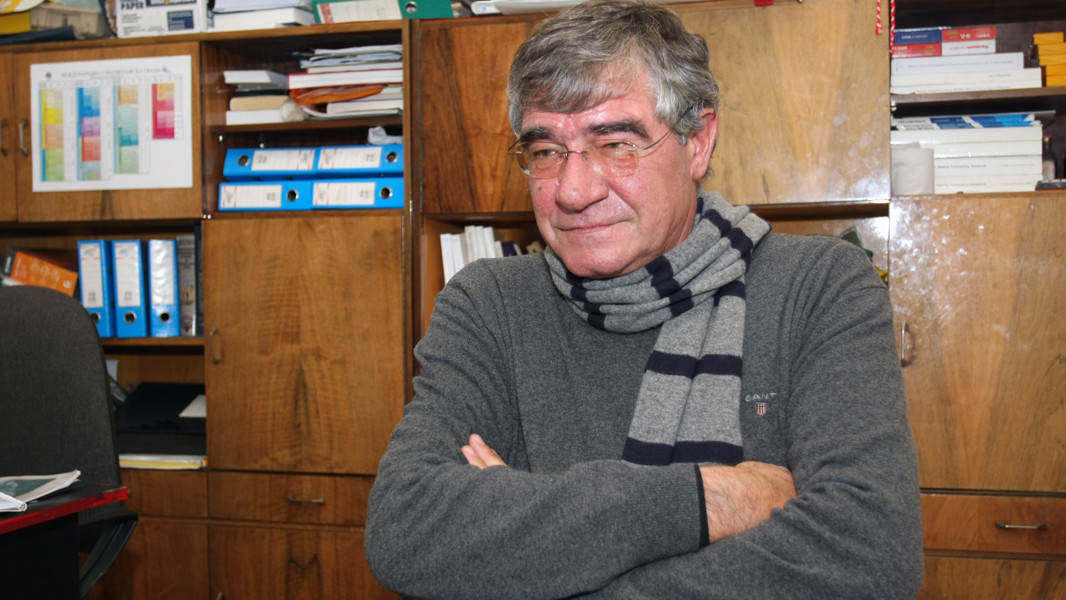
“Our Bulgarian Antarctic research work has gone down in Bulgaria’s most modern history, as it was launched way back, in the 20th century – in 1987-1988, during the first Antarctic expedition when two small houses were put up on Livingstone Island,” says the chairman of the Bulgarian Polar expeditions Prof. Christo Pimpirev.
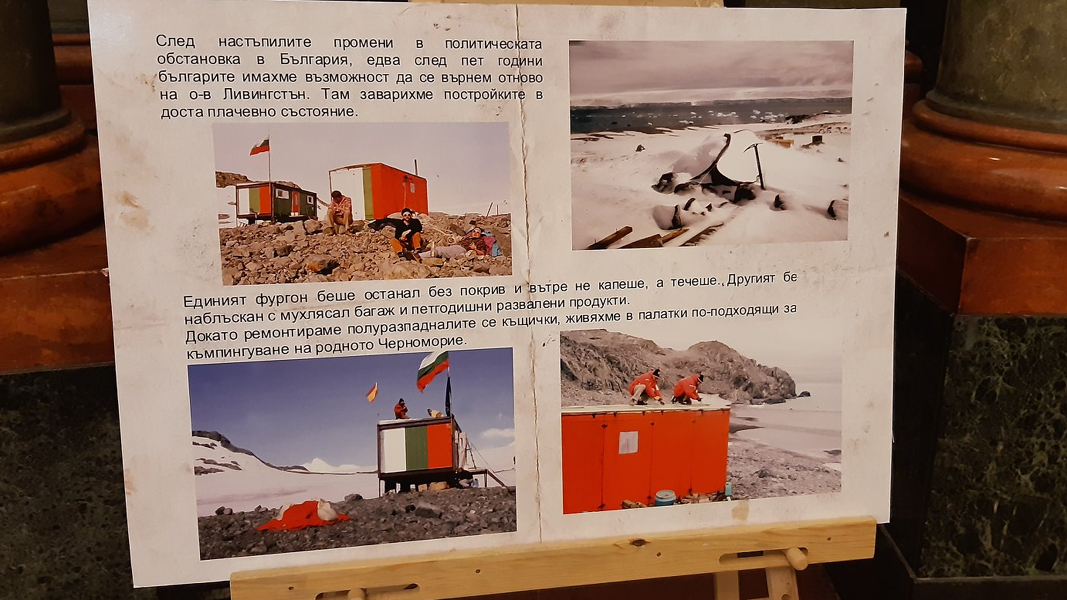
The photos from the exhibition - History of the Bulgarian polar base St. Kliment Ohridski – trace the development of the Bulgarian base from two small houses to seven solid buildings. One of them is the first Christian Orthodox church in Antarctica, the St. Ivan of Rila build in 2003, but with a new building since 2012. After the democratic changes in the country in 1989 the expeditions to Antarctica was temporarily suspended but were resumed in 1993.
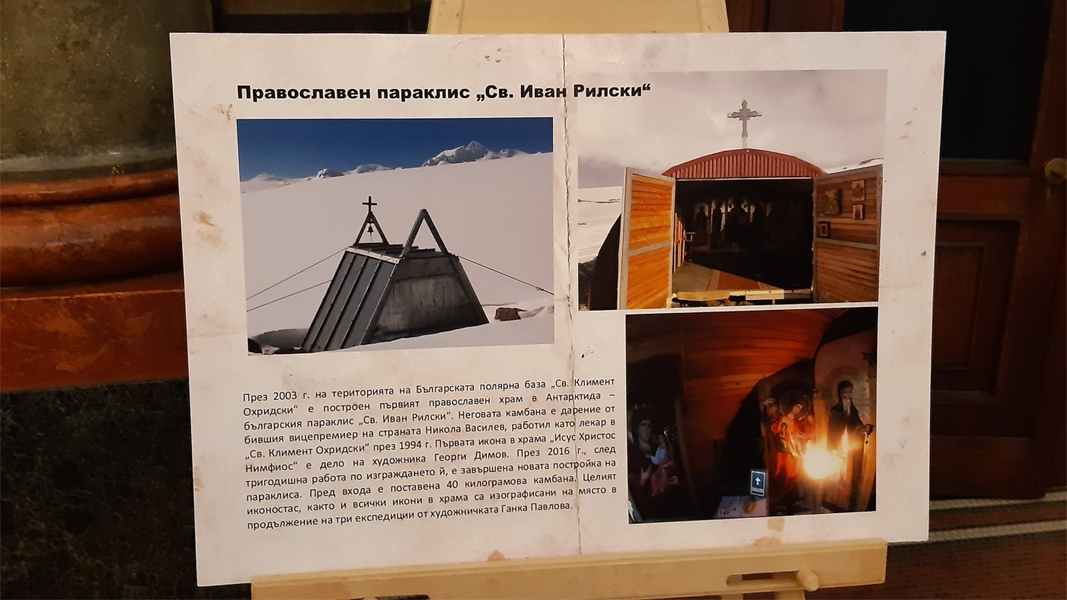
The 28th Bulgarian polar expedition is underway this very moment. The first group of Polar researchers arrived on Livingstone Island at the end of November, the second group leaves on 11 December, the third – on 6 January, 2020, and the last – on 20 January.
Here is Prof. Pimpirev with more about the 28th Bulgarian Polar expedition:
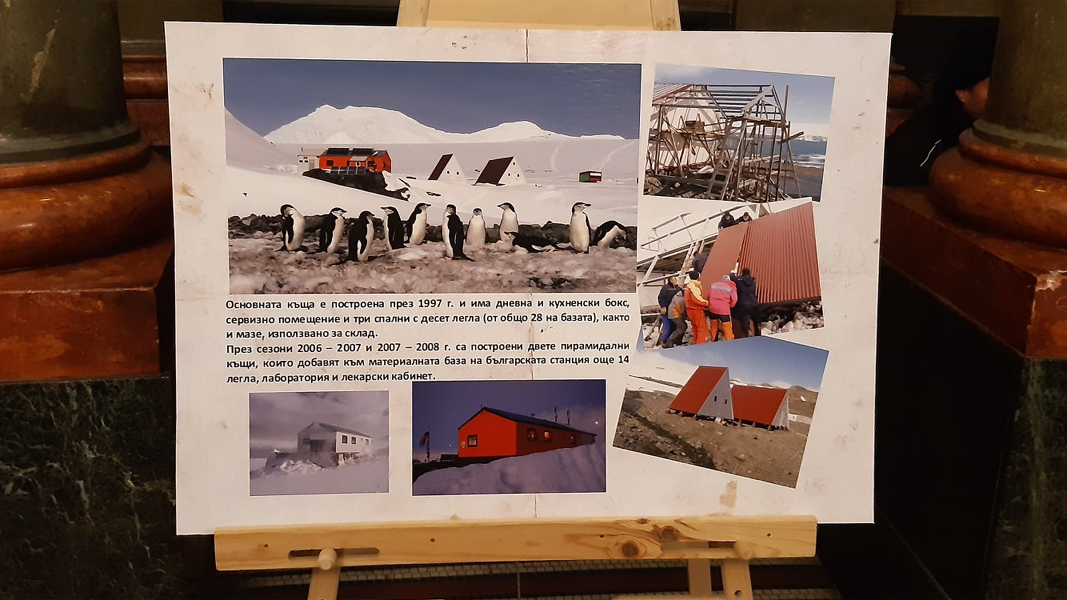
“The first group of 11 people, mostly logisticians – mechanics, engineers, sleigh drivers – have the task of preparing the base for the coming Polar season in which the focus will be on scientific research. This group includes only one scientist – Dimo Dimov – a geologist working on a project from the national Polar programme financed by the Ministry of Education and Science. We are obligated to the state and to the scientific community to build a science laboratory on the icy continent that will be the face Bulgarian science turns to the world.”
Scientists from more than 30 countries have been to the Bulgarian base. To be able to implement research projects properly they need a working science lab. Following a contest, architect Penka Stancheva’s team won the project for building a laboratory. It will have 4 rooms and will be used by biologists and researchers in the spheres of geology, geophysics, geomorphology, glaciology, seismology.
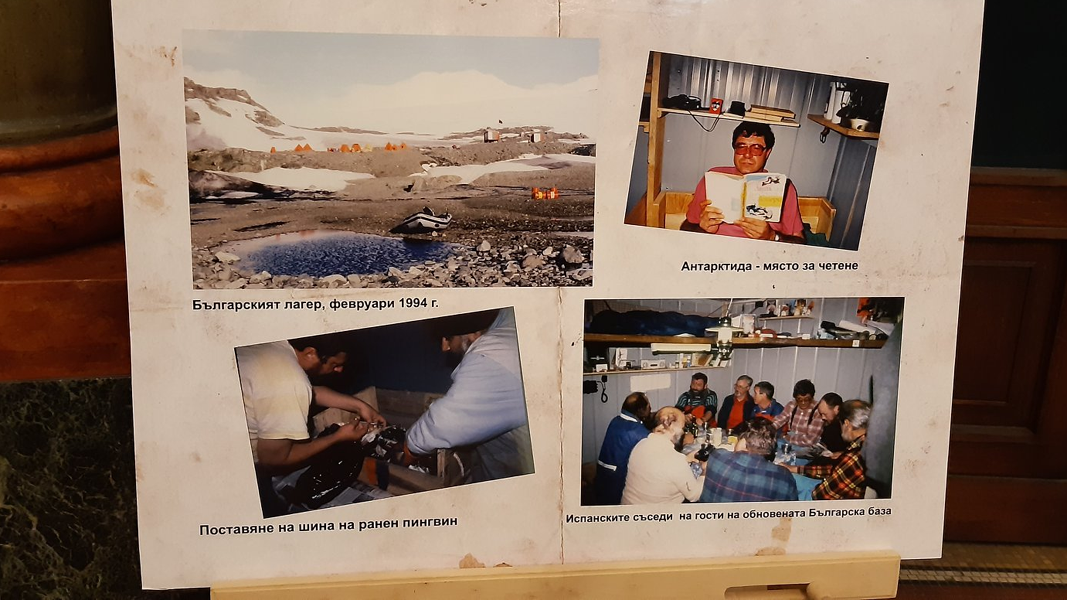
Prof. Pimpirev stated, as he has so many times, that in Antarctica the effect of climate change and warming is most palpable – a glacier which had for years, hindered the polar researchers from getting from one end of the island to the other has now receded from the coast by 15 metres. And this is just one piece of evidence proving that glaciers are melting and the sea level is rising.
Photos: facebook.com/Bulgarian-Antarctic-Institute
The prices of Easter goods are rising The Easter meal in the Balkan countries will be more expensive this year, BTA reports. Lamb in Serbia costs about 1,400 dinars (EUR 11.5) per kilogram in supermarkets. On Good Friday, fish..
Residents and visitors to Sofia will have the opportunity to learn more about Bulgarian scientists working in Antarctica and their important role in the exploration of the continent. The exhibition "Antarctic People - Caring for the Earth" by BNR..
Looking and feeling your best doesn’t have to come at a high price — especially in Bulgaria. The country has become a rising star in beauty tourism, offering top-tier salon services at prices that won’t break the bank. Whether you’re a local or a..
Digital nomadism, a lifestyle where people choose remote work so they can travel and live in different environments, is becoming a phenomenon on the way..

+359 2 9336 661
